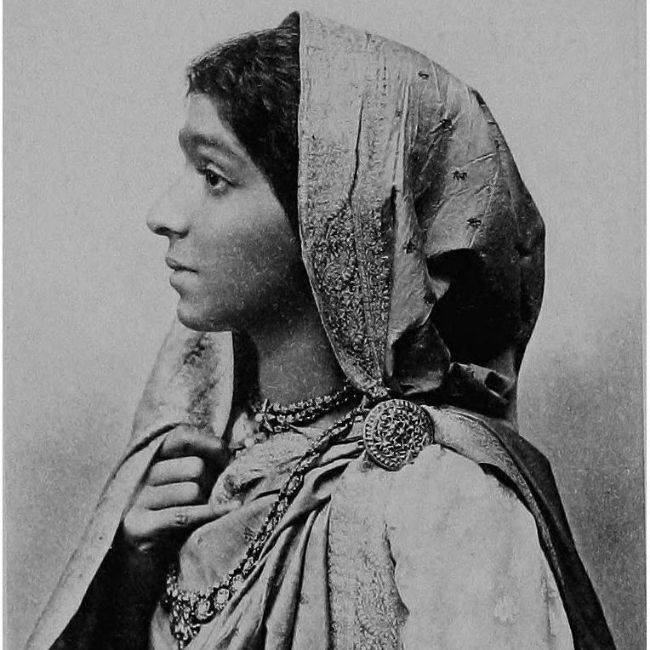
Sarojini Naidu’s Timeless Impact
A Prodigy, Born and Bred
Child of Words and Science:
Sarojini Naidu, or ‘Bharatiya Kokila’, wasn’t your typical freedom fighter. Born in Hyderabad in 1879, she was a child of contradictions. Her father, a visionary scientist, founded the Nizam College. Her mother, a poetess, filled their home with the rhythm of Bengali verse.
Young Sarojini inherited both – a thirst for knowledge and a soul stirred by words. They say she topped her university matriculation exams at twelve, and spoke not just English and Bengali, but Urdu, Telugu, and Persian as well! An English Education,
A Defiant Heart:
A scholarship to King’s College in London was inevitable. There, Sarojini dazzled stuffy academics with her intellect, but also fell head over heels in love – not with a poet or some fiery-eyed revolutionary, but a physician named Govindarajulu Naidu!
Her family might have raised eyebrows at marrying outside her caste, but Sarojini had a mind of her own. Back in India, alongside raising four children, she’d forge a path few women of her time dared to even imagine. As they say, “Well-behaved women seldom make history,” and Sarojini Naidu was never one to follow the rules.
From Poetry to Protest
The Fire Ignited:
For Sarojini, poetry wasn’t merely pretty words. It was a reflection of the world, a tool to understand it. Then came the 1905 Partition of Bengal – a move by the British Raj to divide and weaken. That spark lit a fire Sarojini couldn’t ignore.
Meeting Gandhi, with his insistence on non-violence, and the intellectual fervor of Jawaharlal Nehru, fueled her determination. Suddenly, the woman known for lyrical verse turned revolutionary.
Uncaged Songbird:
They might have expected her to stay home, write sad poems, perhaps. Instead, Sarojini was out there – leading rallies, her fiery speeches electrifying crowds. She even traveled to England and America, making India’s case on the global stage.
And prison? Well, the British learned that even bars couldn’t cage her spirit. She even shared a cell with Gandhi during the Salt Satyagraha in 1930, some say their laughter echoing through the corridors!
Ink and Revolution:
Even in the heart of the struggle, poetry remained Sarojini’s weapon. Her collections like ‘The Golden Threshold’ and ‘The Bird of Time’ didn’t just mourn India’s suffering. They celebrated its beauty, its defiant spirit, its hope.
A reminder that even amidst conflict, there’s a song to be sung. The British may have conquered lands, but it was poets like Sarojini who shaped the soul of an independent India.
A Legacy as Complex as India Itself
A Woman of Firsts, A Nation of Contradictions:
Sarojini Naidu shattered glass ceilings. She led the All India Women’s Conference. She became the first woman President of the Indian National Congress. As Governor of Uttar Pradesh, she was the first woman to hold such high office in independent India.
With each achievement, she redefined what was possible. Yet, India was then, and remains today, a study in contrasts – ancient wisdom clashing with modern dreams, deep-rooted inequality persisting alongside progress. Sarojini herself, fluent in English yet fiercely proud of her Indian identity, , embodied this tension.
Nightingale, Yes, But So Much More:
She lived in a time of immense change, heartbreak too – Partition and its ensuing violence would scar the nation forever. Yet, Sarojini’s work, both political and poetic, held onto optimism, a belief that India could emerge from darkness.
Sadly, her own tireless heart gave out in 1949. But as India navigates its own ongoing complexities, her words serve as inspiration. Schoolgirls still memorize her lines, women striving for a seat at the table remember her audacity – proof that a legacy isn’t just about the past, but the fire it kindles in the present.
Reflection
Nightingale? Perhaps for a moment. But Sarojini Naidu was more like the monsoon – unpredictable, undeniably powerful, and leaving behind a world forever changed. And frankly, India wouldn’t have it any other way.
Inspiring Women: Celebrating Their Voices
Writers & Poets:
Champions of Change:
Voices for the Voiceless:
Watch a video
Picture this: In the vibrant world of Indian cinema, she made a sparkling cameo in the Hindi rendition of the Tamil classic ‘Meera’ (1945), ingeniously paving the way for the legendary M.S. Subbulakshmi to enchant the hearts of the North Indian audience!

Curious Times is a leading newspaper and website for kids. We publish daily global news aligned to your learning levels (also as per NEP 2020): Foundational, Preparatory (Primary), Middle and Senior. So, check out the News tab for this. We bring kids’ favourite Curious Times Weekly newspaper every weekend with top news, feature stories and kids’ contributions. Check out daily JokesPoke, Tongue Twisters, Word of the Day and Quote of the Day, kids need it all the time.
ME – My Expressions at Curious Times is your place to get your work published, building your quality digital footprint. And it is a good way to share your talent and skills with your friends, family, school, teachers and the world. Thus, as you will step into higher educational institutes your published content will showcase your strength.
Events, Quizzes and Competitions bring students from over 5,000 schools globally to participate in the 21st-Century themes. Here schools and students win certificates, prizes and recognition through these global events.
Sign-up for your school for FREE!
0 (Please login to give a Curious Clap to your friend.)
SignUp to Participate Now! Win Certifiates and Prizes.

[…] Sarojini Naidu’s Timeless Impact […]
[…] Sarojini Naidu’s Timeless Impact […]
[…] Sarojini Naidu’s Timeless Impact […]
[…] Sarojini Naidu’s Timeless Impact […]
[…] Sarojini Naidu’s Timeless Impact […]
[…] Sarojini Naidu […]
[…] Sarojini Naidu […]
[…] Sarojini Naidu […]